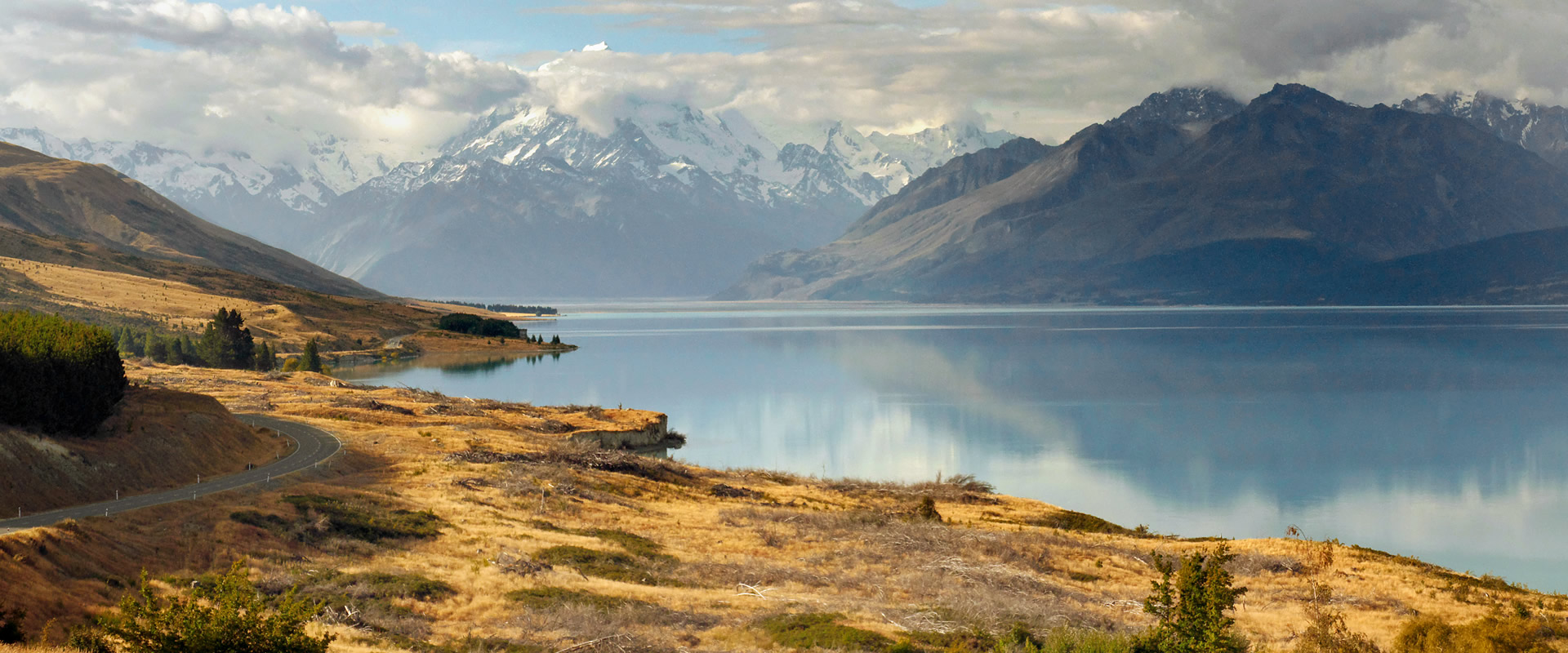Information for Prospective Students
I prefer that all prospective students at all stages in their academic careers reach out to me via email if they’re interested in working with me.
In your email, its helpful if you can briefly introduce yourself, provide a few details about your educational background, & attach your resume/CV. Examples of the emails I sent potential advisors when I was applying to graduate school are provided below as a means to end this piece of the “hidden curriculum” of entering academia. You should expect me to reply within 1 week to your email & I encourage you to follow up with me if you have not heard back by then.
Table of Contents
What My Students Say:



Undergraduates
I’m always happy to work with motivated undergraduates on projects tailored to their interests to expose them to what doing research entails. Please reach out if you’re (1) a University of Utah undergraduate interested in applying to work on research with me through a UROP, or (2) an undergraduate at any institution interested in working with me during the summer through the University of Utah’s REALM REU program. At the University of Utah, a UROP provides a $1,200 stipend and educational programming for students who assist with a faculty member’s research, though I’m also happy to have students unaffiliated with this program work with me on a project of their interest. REALM REU students receive a summer stipend of $6000 (over 3 months), travel to/from Salt Lake City is covered up to $600, and housing is provided.
Graduate Students
Students who want to work with me should formally apply through the Department of Atmospheric Sciences at the University of Utah before the deadline on January 7th, 2024. Please contact me via email (usually in the summer or fall before our admissions deadline) if you’d like to know more about the projects I’m currently looking for students to work on.
At the University of Utah, there is some advantage for prospective graduate students who submit their application to the Department of Atmospheric Sciences earlier than the deadline. While the timing of when an application is submitted will not impact your chances of admissions, students who submit their materials earlier have the potential to hear back from us sooner than those that submit at/around the deadline. That’s not always the case, but is information I’d rather all students have this information going into the process! A good target deadline for submission is the 2nd or 3rd week of December.
If you’re nervous about working for a brand new Professor, I’m happy to put you in contact with students I have previously mentored or answer any questions you may have about my mentoring style! I’m just as nervous about finding the right first graduate student as you are about finding the right Ph’D advisor. And finally, I’m always happy to share the names of others in atmospheric chemistry that may be a better research match if it turns out that our research interest’s aren’t as well aligned as you originally thought (there’s no harm in having a first conversation & changing your mind).
Note: In the Department of Atmospheric Sciences at the University of Utah, graduate students incur no cost for tuition and receive health benefits. Graduate students are supported financially at a minimum of $31,500 (M.Sc.) or $35,000 (Ph.D) annually. A $1000 housing allowance will be provided for the first month in residence. To apply, you are not required to take the Graduate Record Examination (GRE). There is some potential for the application fee to be waived for some students & inquiries about this should be directed to our Department’s administrative staff who are not involved in making decisions about admissions (Alex Munoz alex.munoz@utah.edu).
Current Projects (Fall 2023):
I am specifically looking for a student starting Fall ’24 to work on the following project that I’ve won NSF funding to support, but if it doesn’t sound all that interesting to you, please know there are a variety of other projects in our group you could work on related to topics in Atmospheric Chemistry. I’m happy to provide you with a list of those prospective topics if you email me- this is just the one I have specific funding for at the moment and is a top priority for me to find a student to work on.
About the Project:
It has been well established that mercury is an ecosystem contaminant transported globally in the atmosphere that biomagnifies in aquatic environments and poses a high health risk to both humans and wildlife. Mercury is emitted into the atmosphere in its elemental state (Hg0), where it subsequently undergoes reactions with atmospheric oxidants that transform it into its oxidized, divalent form (HgII), which is highly water-soluble and rapidly deposits to surrounding ecosystems. However, many questions remain about the chemistry surrounding mercury’s atmospheric redox chemistry, particularly regarding which oxidants initiate Hg0 oxidation and at what rates these reactions occur. This uncertainty causes different global model chemical mechanisms to predict different spatial patterns and different total masses of HgII deposited to ecosystems.
With collaborators at Utah State University, we plan to perform a year-long measurement campaign based outside of Salt Lake City, UT between September 2024-2025 where we will collect simultaneous measurements of Hg0 and HgII and concentrations of key compounds that are needed to constrain the oxidation of Hg0, including halogen radical sources and other oxidants. The location we have selected as the site of the campaign is near a large industrial facility, U.S. Magnesium, in an area home to the highest measurements ever made in the U.S. of HgII and halogen compounds making it a uniquely insightful place to make observations of this chemistry. Following the campaign, we plan to do some box modeling to interpret the data we collect and will subsequently translate our findings from the box model analysis into the global chemical transport model, GEOS-Chem, to see the global impact of our findings on mercury deposition.
The Student’s Role:
My student’s primary role in this project will be to update GEOS-Chem’s chemical mechanism using our box model results to see the global significance of this chemistry’s impact on the deposition of mercury. The student will learn how to run and make changes to GEOS-Chem and how to compare model predictions to observations. However, there’s also a chance for my student to be involved in the data collection during the campaign itself (as we are much closer to the site than our collaborators) and they may get a chance to collaborate with state air quality officials. Our work could have large impacts on state policy decisions and is likely to be a high-impact project as it relates to our understanding of the role of halogens in transforming mercury into its more toxic form. This project has implications for how much toxic mercury could be deposited in and around Salt Lake City if the lake continues to dry up from poor water management practices by the state and climate change.
Salary/Benefits:
Graduate students in the Department of Atmospheric Sciences at the University of Utah are fully funded at an annual rate of $31,500 (M.Sc.) or $35,000 (Ph’D), including health benefits & travel to conferences and do not incur any cost for tuition. The student will be primarily advised by Prof. Jessica Haskins with funding from NSF Division of Atmospheric & Geospace Sciences on grant #2321380.
Postdocs
Currently, I have no funding for a Postdoc, but I’m very willing to brainstorm projects and submit applications for funding with you. Please reach out if you’re interested in applying for fellowship funding together! As a (very) recent NSF Postdoctoral Fellow in Atmospheric Sciences, and candidate on the Faculty market, I can provide resources & tips for successfully navigating today’s competitive job market.
About Me & My Mentoring Style
More About Me!
I’m a proud, married lesbian woman, originally from rural, south Georgia and grew up attending a Title I public school before going to MIT for my undergraduate degree. My personal background is quite different from most I’ve met in my academic career, which has given me a deep personal understanding of the value that having a set of diverse perspectives in a room, can bring. I want to work with students from diverse backgrounds and hope to create a research environment where anyone can be themselves and feel that they receive equal support for their career and personal needs.
I’m an extraverted, optimistic, overtly friendly, & generally enthusiastic person- especially when it comes to science or hobbies that interest me! This is, probably, the first thing people notice about me and is the most consistent trait people who know me will comment on. Outside of science, I have a huge passion for brass band music and I play trombone in a variety of local community bands. I am an outdoor enthusiast and enjoy hiking, skiing, mountain biking, camping, fishing, and doing any motorsport in my free time. I’m a proud “maker” and enjoy woodworking, sewing, crafting, and can frequently be found in my garage tinkering with my Jeep. My wife & I have one incredibly cute cat named Stout, and we own/operate the 6th largest Lego store in Utah as a side gig. We are also big “foodies” and enjoy finding the best brunch, BBQ, local coffee, & craft beer in new places.
As A Mentor
I see myself as someone who greatly benefited from amazing mentors throughout my life and am hoping to begin paying that forward to all of my future students. As a mentor, not only an advisor, I hope that my students are comfortable discussing their worries, hopes, struggles, and successes with, as those evolve and change with their experiences in research & in life. I strive to be transparent with my expectations and hope that I can follow through on my intentions to be willing to receive feedback from my students.
Currently, I think my biggest strengths as as mentor are my empathy, my enthusiasm, and my genuine support of student’s individual aspirations-whether they lie in academia or beyond. I try to embrace a growth mindset and am currently working on being a better listener, being more organized, and being less “hands-on” with my students. The transition from being a student to being a new Professor is a big one and I hope that by continually reflecting on my strengths & weaknesses, I can keep growing into being the best mentor that I can.
Students who work with me can expect to check-in with me on their research progress in 1 on 1 meetings on a weekly basis in their first few years and on a timeline they set later. Generally, I try to only work during work hours to set health work/life boundaries and don’t expect my students to work outside those hours either. As such, I don’t send emails outside of the normal work week unless a specific emergency/deadline calls for it. I see my students as professional adults and expect them to take their research as seriously as they would any other job. As such, I expect students to keep me informed of their PTO using an established system just as they would have at any other job. Similarly, students who work with me should expect to have an annual performance review meeting in which we both can provide feedback to one another.

"I'm missing SOME/ all these... "
That’s OK! You should still contact me/apply and here’s why.
I wouldn’t have met all of these when I was applying for graduate school – and I was an MIT senior; being an “ideal student” is a pretty high bar for ANYONE to meet. I didn’t know how to code when I started doing undergrad research- a Professor took me on anyways.
Whatever you’re missing, you can learn. I’ve only shared these qualities to be transparent about what sort of student I’m looking to find so that all prospective students have the same information on what I value in an application.
My Ideal Graduate Student
(1) The student is a highly effective communicator. This applies both to scientific communication & personal communication. My ideal student is able to effectively share, either, why they want to pursue a graduate degree, the general field of research they are interested in, the skills they would like to develop, or their dream job & their motivation to pursue it. I don’t expect students to know exactly what they want to work on yet- but I highly value a student’s ability to communicate what it is they want to learn next since it makes it much easier for me to design an appropriate mentoring plan to meet your goals! My ideal student has demonstrated their scientific communication ability through prior work they’ve published/presented, and in their ability to discuss their contributions to prior projects in their email, application, & correspondence.
(2) The student has some experience coding. I prefer to use python (pandas, xarray, numpy, matplotlib, scipy, & seaborn are particularly useful packages to know the basics of) in my research, but my group also frequently uses MATLAB, Fortran, & Unix (experience with other languages like R, IDL, C/C++ etc. are also very relevant). My ideal student would also have experience with GitHub and would have a public portfolio of project’s they’ve contributed to.
(3) Prior Academic Preparation: The student has taken Organic Chemistry, Thermodynamics, and Calculus up to Differential Equations. Its extremely advantageous if the student has had any prior work experience or research experience in chemistry, atmospheric science, computer science, air quality, policy, engineering, or climate change and can describe their contributions to these projects, confidently. Generally, I value grades less than experiences.
(4) Achievements & Other Activities: I’m looking for a student has demonstrated academic curiosity and persistence in some aspect of their prior commitments. While the GRE may not be an effective indicator of graduate student success, I’m personally convinced that perseverance may be!
Example Emails to Prospective Mentors
To the right are two, anonymized, email exchanges I had with potential graduate school mentors before I applied to their University’s programs (I was accepted to both).
Timing
It’s best if you send these emails a few months/weeks prior to when you plan to apply. This will given Professors (who are often more busy towards the end of a semester/quarter) time to get back to you & makes you look more prepared than emailing them a week before you apply! Best practice is for applications due in December to email in October/November. For those due in January/February, email them in December. If you look at the dates on the examples, you’ll see I waited until the last minute- I wish I had emailed earlier.
Content
Generally, when cold emailing a prospective mentor, the best advice is to ask questions you can’t get the answer to on their webpages (you want to show you’ve done your homework). It’s useful to share a bit about yourself, your research experience/interests, why you want to pursue a graduate degree/what you want to do with it after (that is, if you know already) and what technical skills you bring/hope to develop in grad school (e.g. if you know any coding languages, if you’re hoping to learn to learn to run a specific model, learn to forecast, use satellite data, do lab experiments, etc.). Getting specific won’t hurt! At least in Atmospheric Sciences, most students will also attach a recent resume/CV. Whatever you decide to include, it should be brief/ easily “scannable”. Almost all Professors are likely to spend less than 5 mins reviewing whatever you attach, so please, make that easy for us to do.
Ask all your questions even if you think they’re “dumb” (these are usually good questions that we have neglected to answer on our webpages or have answered poorly). It is entirely appropriate to ask a Professor to put you in contact with students they have advised in the past. If it’s not clear if a Professor works more on modeling/experiments and you really want to do one or the other, then that’s important to ask! If you’re interested in only 1 aspect of their research, ask if they have any current projects related to that topic or not. If a Professor you want to work with is affiliated in multiple Departments or in a multi-discipline “Program” and you’re not sure what Department you should apply through, then you should ask. Currently, students who want to work with me must apply through the Dept. of Atmospheric Sciences.
If application fees are an issue for you, it is OK to ask if there are resources for you to apply with a fee waiver. Many programs will NOT advertise these on their webpages, but may have those resources if students ask directly. You should NOT be afraid to ask a Professor this question in your email correspondence. Good mentors will move mountains to work with motivated & qualified students. Plus, their response to your inquiry should give you a good idea of whether they will be a good advocate for your needs throughout your time working with them. However, a good neutral third party to reach out to is the Department’s administrative staff who can answer these questions for you. For students interested in working with me, this person is Alex Munoz (alex.munoz@utah.edu).
Example #1

Example #2



